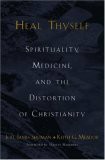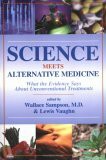"Broca's Brain", "Sense and Nonsense at the Edge of Science", "Reflections on a Grain of Salt", and several other essays by astronomer and science writer Carl Sagan are collected in one volume under the title of the first -- "Broca's Brain". (Referring to Dr. Paul Broca -- anatomist, surgeon, neurologist, anthropologist: Mid 19th century "founder of modern brain surgery"; discoverer of localized separation of functions in the brain, especially the articulate speech area now known as Broca's area. One of his chief theories being: "In general, the brain is larger in mature adults than in the elderly, in men than in women, in eminent men than in men of mediocre talent, in superior races than in inferior races.")
In "Seven Experiments That Could Change the World", author Rupert Sheldrake, relates that five "eminent" professors at [the University of] G�ttingen (now in West Germany) gave consent to have their brains weighed after they died; when their cerebral weights turned out to be embarrassingly close to average, Broca concluded that the prefessors hadn't been so eminent after all.
(Surely his theory couldn't be flawed! - Isn't that just like all of us? Of course, we're not always right. But we're almost never truly wrong, you know.)
Sagan, after recounting actually holding Dr. Broca's (now mindless, of
course) formalin-preserved brain in his hands, writes:
 "Broca was a humanist of the nineteenth century, but
unable to shake the consuming prejudices, the human social
diseases, of his time. ... Broca, the founder of a society of
freethinkers in his youth, believed in the importance of
untrammeled inqiry and had lived his life in pursuit of that aim.
His falling short of these ideals shows that someone as unstinting
in the free pursuit of knowledge as Broca could still be
deflected by endemic and respectable bigotry. Society corrupts
the best of us. It is a little unfair, I think, to criticize a
person for not sharing the enlightenment of a later epoch, but it
is also profoundly saddening that such prejudices were so
extremely pervasive. The question raises nagging uncertainties
about which of the conventional truths of our own age will be
considered unforgivable bigotry by the next. One way to repay
Paul Broca for this lesson which he has inadvertently provided us
is to challenge, deeply and seriously, our own most strongly held
beliefs." --- "Broca's Brain"
"Broca was a humanist of the nineteenth century, but
unable to shake the consuming prejudices, the human social
diseases, of his time. ... Broca, the founder of a society of
freethinkers in his youth, believed in the importance of
untrammeled inqiry and had lived his life in pursuit of that aim.
His falling short of these ideals shows that someone as unstinting
in the free pursuit of knowledge as Broca could still be
deflected by endemic and respectable bigotry. Society corrupts
the best of us. It is a little unfair, I think, to criticize a
person for not sharing the enlightenment of a later epoch, but it
is also profoundly saddening that such prejudices were so
extremely pervasive. The question raises nagging uncertainties
about which of the conventional truths of our own age will be
considered unforgivable bigotry by the next. One way to repay
Paul Broca for this lesson which he has inadvertently provided us
is to challenge, deeply and seriously, our own most strongly held
beliefs." --- "Broca's Brain"
In another essay, he relates meeting Albert Einstein (The two evidently became good friends.) and repeats Einstein's reference to nationalism (including racism and its relatives) as a childhood disease, the measles of society; and to history books as glorifying war, hiding it's horrors and instilling prejudice and hatred in the minds of our children.
In "Sense and Nonsense at the Edge of Science", he acknowledges: "Scientists are, of course, human. When their passions are excited they may abandon temporarily the ideals of their discipline. ... There must be a way of testing any valid idea. ... The character or beliefs of the scientist are irrelevant; all that matters is whether the evidence supports his contention. Arguments from authority simply do not count; too many authorities have been mistaken too often. I would like to see these very effective scientific modes of thought comunicated by the schools and the media; and it would certainly be an astonishment and delight to see them introduced into politics. Scientists have been known to change their minds completely and publicly when presented with new evidence or new arguments. I cannot recall the last time a politician displayed a similar openness and willingness to change."
In "Reflections on a Grain of Salt" he concludes: "I like a universe that includes much that is unknown and, at the same time, much that is knowable. A universe in which everything is known would be static and dull, as boring as the heaven of some weak-minded theologians. A universe that is unknowable is no fit place for a thinking being. The ideal universe for us is one very much like the universe we inhabit. And I would guess that this is not really much of a coincidence."
[ How interesting! We're told by some "authorities" that everything about the universe is a COINCIDENCE. - ed.]
by Joel James Shuman and Keith G. Meador
 About: "the power medicine exercises in modern society and ...
implications that reach far beyond medical care" (from the Foreword by
Stanley Hauerwas) and "the fetish called health" (from an Editorial
Review).
About: "the power medicine exercises in modern society and ...
implications that reach far beyond medical care" (from the Foreword by
Stanley Hauerwas) and "the fetish called health" (from an Editorial
Review).
By a former physical therapist with a Ph.D. in theology and a psychiatrist with postgraduate theological training,
Stedman's Medical Dictionary:
There are actually several editions for different needs and
specialties.
Some of the highly specialized ones are rather expensive but others
are surprisingly affordable the last time I checked. Try Amazon,
Barnes&Noble, or better yet, your local used book outlets if you
have such nearby.
"Explores the nature and limits of the power that can be legitimately exercised by society over the individual." - Wikipedia.com
"Whatever crushes individuality is despotism, by whatever name it may be called." "The despotism of custom is everywhere the standing hindrance to human advancement..." "Customs are for customary circumstances, and customary characters: ... [an individual's] circumstances or character may be uncustomary." - "On Liberty" by John Stuart Mill, 1806 - 1873, British philosopher, political economist and one time Member of Parliament.
His 1843 essay "A System of Logic" was followed by the influential "Principles of Political Economy" in 1848. In 1851, following the death of her husband, he married long time close friend and co-worker Harriet Taylor. After she died in 1858, Mill, profoundly affected, dedicated to her the famous 1859 essay "On Liberty" on which they had worked together.
His thinking is said to have been influenced by such philosophical predecessors as Plato and Aristotle, as well as the more recent Aquinas, Hobbes, Locke, Bentham, Smith, Ricardo, Tocqueville, and of course his father James Mill. He is considered to have in turn influenced such successors as John Rawls, Robert Nozick, Bertrand Russell, Karl Popper, Ronald Dworkin, H.L.A. Hart, and Peter Singer.
(Of course, no human philosophy can be relied upon for infallible guidance. But some, particularly those encouraging understanding and reasonable acceptance - or at least tolerant treatment - of others deserve SOME thoughtful consideration, don't you think?)
Anthony Standen
What the Evidence Says About Unconventional Treatments"
(c)2000 by Wallace Sampson, M.D.
and Lewis Vaughn.
 The title SHOULD be "Alternative Health Care on Trial -- In Kangaroo
Court". The only "evidence" presented merely exposes a few of the
charlatans and con artists such as can be found in (but do not
automatically characterize) ANY profession, business or industry.
The title SHOULD be "Alternative Health Care on Trial -- In Kangaroo
Court". The only "evidence" presented merely exposes a few of the
charlatans and con artists such as can be found in (but do not
automatically characterize) ANY profession, business or industry.
If you're serious about non-medical health care and really want to know what you're "up against", however, this is the "inside scoop" on the "eternal skeptics club" -- from the "horse's mouth" no less. (After you've read the book, you might decide one of the horse's relatives would be more appropriate here, but we're still TRYING to "be nice" about this, remember.)